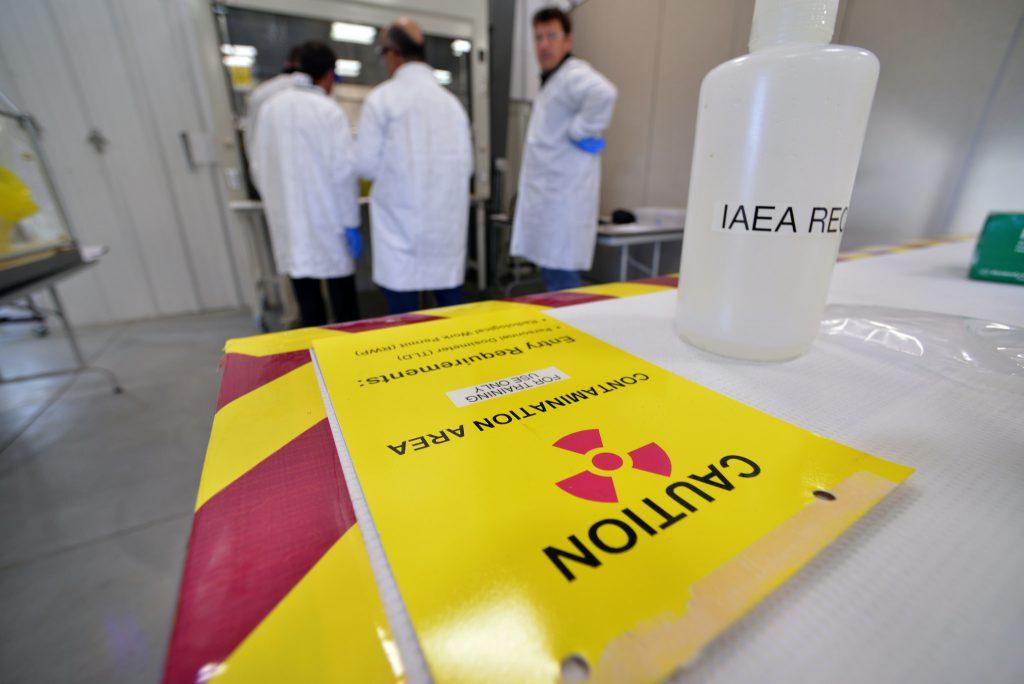All is not lost in Australia’s fight against nuclear weapons
Posted By Cathy Moloney on August 7, 2017 @ 13:03

Nuclear non-proliferation can be assessed from several different perspectives that are characterised by polarising and even contradictory views. Very few topics divide international opinion as much as the future of nuclear non-proliferation. On the one hand, there’s general global consensus aimed at disarmament, governed under the Non-Proliferation Treaty (NPT) since 1968. On the other hand, there are those who believe that nuclear deterrence provides the best form of defence. The recent draft UN treaty to ban all nuclear weapons brings the former one step closer, but it has also caused some controversy because of the absence of certain nations, including Australia.
The ANU’s Professor Ramesh Thakur, who also serves as the United Nations Association of Australia’s Goodwill Ambassador for Nuclear Non-Proliferation and Disarmament, argues that Australia should have at least made an appearance [1] at the negotiating table. Even if, as he suggests, Australia is reluctant to be involved in gesture politics, it should have sent a delegation. That would have afforded the government an opportunity to listen to the current thinking and ideas coming from the 124 countries that were involved. Moreover, Australia would have been under no obligation to participate or vote on the treaty (as shown by Singapore, which abstained). Australia’s participation would have demonstrated the country’s commitment to its longstanding nuclear non-proliferation policy.
However, the fact that Australia didn’t participate in the negotiations in New York doesn’t imply that the government has abandoned its commitment to nuclear issues or, indeed, to nuclear non-proliferation. Australia’s absence from the negotiating table also isn’t an indication that it aims to supply uranium to anyone who wants it. Australia holds a strong position in the nuclear regime, which includes monitoring and regulating the military and civilian use of nuclear material. Australia’s past commitment to the nuclear non-proliferation regime, along with abundant uranium reserves and export potential, gives it leverage to influence the behaviour of other states. That should be held in high regard. In fact, Australia has long used its position in the nuclear regime to ensure that member states of the Nuclear Suppliers Group and signatories to the NPT adhere to strict nuclear safeguards and promote nuclear disarmament. But, for some, that isn’t enough.
Tim Wright, the director of ICAN Asia–Pacific argues that it’s ‘an incitement to proliferate’ [2] if Australia condemns North Korea’s nuclear-weapon program while championing the US nuclear umbrella as essential for its national security. In addition, the Australian Greens Party argue [3]s that the export of uranium is strongly linked to the proliferation of nuclear weapons and calls for Australia to cease both uranium mining and export. So why, ask ICAN and the Greens among others, does Australia champion nuclear disarmament while at the same time supplying uranium to the international market? Australia’s longstanding nuclear policy explains why that’s the case. However, let’s unpack their concerns and evaluate whether Australia’s non-participation in the draft treaty and selling of uranium will see it on the wrong side of history.
Uranium is not used just for military purposes or towards the misery of humankind [4], as some [5] would believe. Such alarmist assumptions breed misinformation about this resource, and its export, enrichment and final use. A quick glance at the Australian Safeguards and Non-Proliferation Office’s website [6] demonstrates that Australian uranium can only be exported for peaceful purposes (such as medicine and civil nuclear power) and is subject to some of the strictest bilateral agreements in the international nuclear regime.
The current Australian nuclear policy stems from the basic tenets of Malcolm Fraser’s nuclear export and non-proliferation policy of 1977. That legacy has allowed successive Australian governments to use uranium exports to influence the behaviour of other states. For example, Australia was an early signatory to the NPT and one of the founding members of the Nuclear Suppliers Group, which seeks to prevent nuclear proliferation by controlling exports of nuclear materials.
Not only does Australia require recipients of its uranium to be covered by International Atomic Energy Agency (IAEA) safeguards, but it has also implemented fall-back safeguards if the IAEA safeguards no longer apply. In addition, no third party can gain access to Australian uranium without Australia’s prior consent. All recipient countries must be parties to the NPT (although an exception has been granted to India), and nuclear-weapon states can’t use Australian obligated nuclear material (AONM) for anything other than peaceful purposes. And Australia has further tightened its export policy by implementing an additional protocol with the IAEA as a precondition for the supply of AONM to all states. Australia is highly regarded in the international nuclear regime for insisting on such strict safeguards, even though the country’s current uranium export volumes are well behind Kazakhstan’s and Canada’s.
All things considered, it could be that Australia was misguided in not making an appearance at the UN negotiations for the draft nuclear weapons ban treaty. However, to suggest that Australia is on the wrong side of history neglects, at the very least, the leading role it has played in nuclear non-proliferation and disarmament since 1945. Australia’s decision to stay away from the negotiating table was discussed at the highest echelons of government and the security community. The debate doesn’t need to be marred by overly alarmist statements or emotive language.
Article printed from The Strategist: https://aspistrategist.ru
URL to article: /not-lost-australias-fight-nuclear-weapons/
URLs in this post:
[1] argues that Australia should have at least made an appearance: http://www.abc.net.au/radio/programs/nightlife/ramesh-on-nuclear/8729684
[2] ‘an incitement to proliferate’: http://www.sbs.com.au/news/article/2017/07/10/times-australia-urged-join-nuclear-weapons-ban
[3] Australian Greens Party argue: https://greens.org.au/policies/nuclear-uranium
[4] towards the misery of humankind: https://greens.org.au/nuclear
[5] some: http://www.huffingtonpost.com.au/dave-sweeney/government-fails-india-ur_b_8547542.html
[6] website: http://dfat.gov.au/international-relations/security/asno/pages/australian-safeguards-and-non-proliferation-office-asno.aspx
Click here to print.